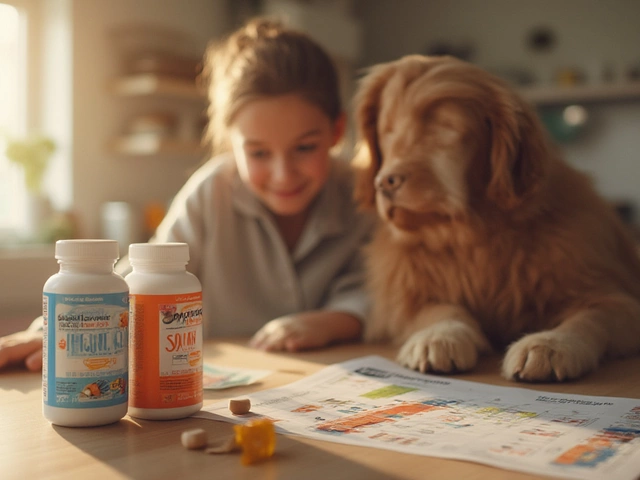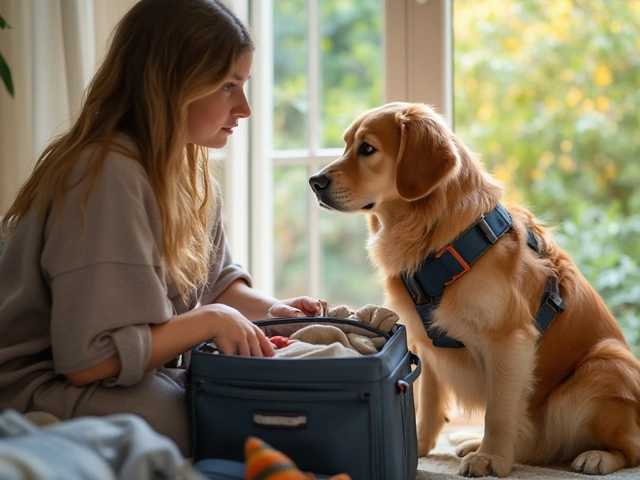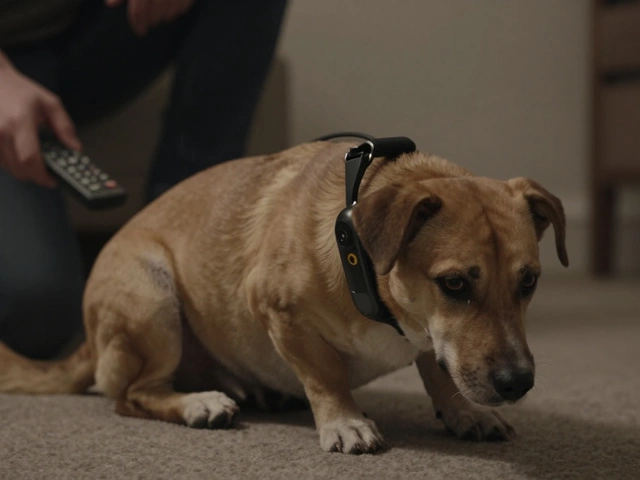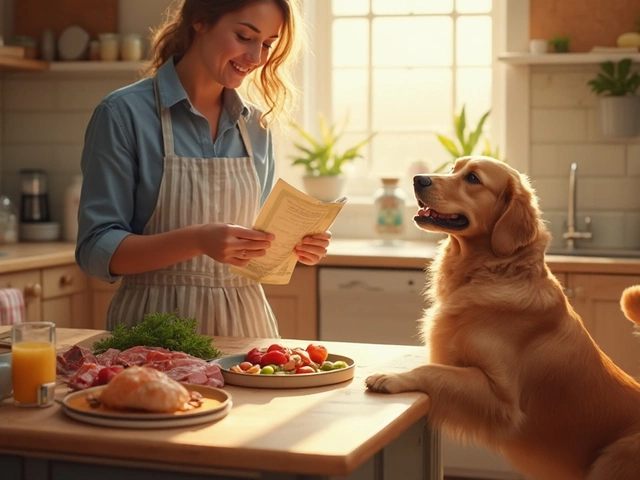Puppy mills often bring up images of cramped cages and unhealthy dogs, and for good reason. In North Carolina, the situation is a bit complicated when it comes to defining and regulating these establishments. So, are they illegal? Well, it's not as clear-cut as you might hope.
Currently, North Carolina doesn't have specific statewide laws targeting puppy mills directly. Instead, these operations may face consequences under animal cruelty or neglect laws if they fail to meet certain standards. This means that while some shady breeders do get penalized, the system relies heavily on enforcement and interpretation of existing animal welfare laws.
As a dog lover heading for a holiday where you might consider adopting a new friend, it's crucial to be aware of these nuances. Not only will it help you make a better decision, but it also arms you with the knowledge to support ethical breeding practices.
- Understanding Puppy Mills in NC
- Current Laws and Enforcement
- Impact on Dogs and Consumers
- Alternatives to Puppy Mills
- Supporting Responsible Breeders
Understanding Puppy Mills in NC
When talking about puppy mills in North Carolina, it's essential to get the facts straight. These are commercial dog breeding facilities that often prioritize profit over the well-being of the dogs. This can lead to some pretty rough living conditions, such as small, crowded wire cages and a lack of proper medical care.
The Reality of Conditions
In these mills, female dogs are often treated like puppy factories, spending their whole lives in maze-like cages with fewer walks than my lazy Sunday strolls. They pump out litter after litter, with little time to recover. Imagine that – never a day off!
North Carolina doesn't currently have laws specifically targeting these mills, which leads to varying enforcement depending on local jurisdictions. However, any breeder is subject to general animal cruelty laws, which can be quite subjective.
Why the Concern?
The lack of specific regulations means that some facilities slip through the cracks, and when these mills operate beneath the radar, it's the dogs and the unsuspecting folks who adopt unhealthy puppies that suffer.
Numbers Speak Louder
To give you an idea of how widespread this issue is, the Humane Society of the United States estimates there are about 10,000 puppy mills across the country. While not all of them operate underground, many are left without proper oversight.
North Carolina Initiatives
Though there's no specific puppy mill law, some local initiatives aim to improve conditions. Advocates in North Carolina have been pushing for more stringent regulations to ensure the humane treatment of dogs. This includes setting a maximum number of dogs, mandatory inspections, and proper veterinary care.
Understanding the landscape of puppy mills in NC helps raise awareness and spark changes. Each informed decision made by potential dog owners contributes to shaping a better future for these pets.
Current Laws and Enforcement
So, what's the deal with laws around puppy mills in North Carolina? Well, it's not like there's a sign that says "puppy mills aren't allowed here." Instead, the state has a patchwork of regulations mostly tied to animal cruelty and neglect. This means shutting down a bad breeder often involves proving they're not caring for their animals properly. Sounds tricky, right?
First up, the Cruelty to Animals statute. This is the big one that authorities lean on. If a breeder's setup is causing undue pain or suffering to the dogs, they could be in violation of this law. But here's the catch: it's super dependent on enforcement. That means local authorities need to be on top of their game and actually check on these breeders.
Local Regulations and Gaps
Some counties and cities have stepped up, creating specific rules about things like kennel sizes and how often inspections happen. Yay for local heroes! However, there's still a lot of variation. It really depends where you are in the state. The Department of Agriculture does some licensing for larger breeders, but again, it's not a tight net.
Here's where it gets interesting. You'd think there'd be a simple rule everyone follows, but no, it's a bit of a maze. Local authorities might impose fines or even shut down operations, but the reality is, enforcement can be inconsistent. That's frustrating for anyone wanting a happy, healthy pup.
The Role of Rescue Organizations
Rescue groups often play a huge role around here. They keep an eye on conditions and push for action when they find issues. It's like a community watch for pet welfare. So, if you're looking for advice or want to make sure you're dealing with a responsible breeder, these folks can be a goldmine of information.
| Aspect | Description |
|---|---|
| Licensing | Not required for small breeders, depends on number of breeding females. |
| Inspections | Varies by county, some areas have annual checks. |
To sum it all up, while puppy mills aren't officially illegal in NC, they often skirt the line of animal welfare laws. If you're in the market for a new dog, it's worth knowing what's going on behind the scenes. Dive deep into local regulations and make sure you're supporting those who care about their animals as much as you do.

Impact on Dogs and Consumers
The effects of puppy mills go beyond just the poor conditions the dogs face. These mills can significantly impact the well-being of the puppies and the people who eventually bring them home. Let's break it down.
Health and Behavioral Issues in Dogs
Dogs from these mills often suffer from various health problems. Due to overcrowding and poor sanitation, they can carry diseases like parvovirus or suffer from genetic disorders that result from inbreeding. Behavioral issues are also common, with many dogs displaying fear, anxiety, or aggression due to lack of socialization and human interaction.
| Common Issues | Consequence |
|---|---|
| Health Problems | High veterinary costs |
| Behavioral Problems | Challenges in training |
Financial and Emotional Impact on Consumers
Owning a dog from a puppy mill can be a costly endeavor. The veterinary bills accumulate quickly due to the aforementioned health issues. Additionally, the emotional toll can be heavy. Imagine the heartache of adopting a puppy only to discover it's suffering immensely.
Moreover, consumers often feel misled. Many are under the impression they're getting a healthy, well-cared-for pet, only to find out the truth too late. This highlights the importance of researching breeders and understanding the North Carolina legal landscape.
Broader Implications
Puppy mills can also affect local economies and shelters. When these mills are shut down, local shelters often become overwhelmed with dogs in need of homes. Awareness and responsible actions by us consumers can help alleviate these issues.
By being informed, you’re taking a step towards making better choices for you and the canine friend you wish to bring into your life.
Alternatives to Puppy Mills
So, you're thinking about adding a new furry friend to your family, but the idea of supporting puppy mills just doesn't sit right with you. Good news is, there are plenty of responsible ways to bring a pet home without contributing to those inhumane practices.
Adopt, Don't Shop
Your local animal shelter is a goldmine for lovable pets in need of a home. Shelters are packed with dogs, cats, and other animals just waiting for a second chance. Plus, when you adopt, you're freeing up space for another animal who needs help.
Did you know that only about 20% of pets in U.S. households are shelter adoptees? There's so much potential to change a pet's life for the better right at your doorstep.
Reputable Breeders
If you’ve got your heart set on a specific breed, look for a reputable breeder. These breeders prioritize the health and well-being of their dogs. They’ll happily show you around, letting you meet the pup's parents and see where the puppies are raised. Always ask for references and do a bit of research online to see what others have experienced.
Rescue Organizations
Breed-specific rescue groups are fantastic resources. They focus on finding homes for purebred dogs who, for various reasons, have ended up without a family. A simple search online can connect you with these organizations in your area.
Pet Adoption Events
Keep an eye out for local adoption events hosted by pet stores or community groups. These events often gather multiple shelters and rescues in one spot, making it easier to find your perfect match.
By considering these alternatives to puppy mills, you're taking a stand against unethical breeding practices and giving an animal a much-needed home. Plus, you'll get all those warm and fuzzy feelings knowing you made a difference!
Check out this stat table summarizing pet adoption trends:
| Year | % of Households Adopting from Shelters | Average Adoption Age |
|---|---|---|
| 2020 | 20% | 18 months |
| 2023 | 25% | 15 months |
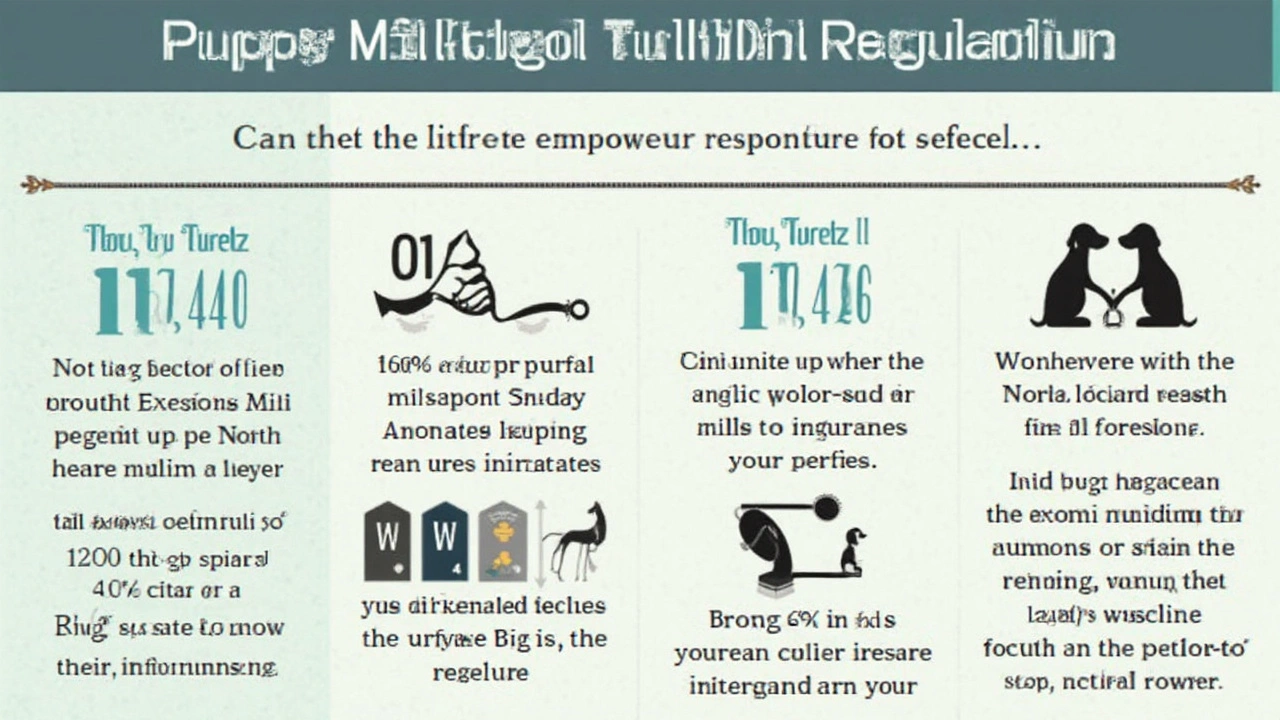
Supporting Responsible Breeders
If you're looking to add a furry friend to your family, supporting responsible breeders is key. These breeders prioritize the health and well-being of their dogs, ensuring that puppies are socialized properly and come from healthy genetic lines. But how do you find these upstanding folks?
What to Look for in a Breeder
First off, do your homework. Responsible breeders will have no problem showing you around their facilities. Look for clean, safe environments where dogs have plenty of room to roam and aren't just kept in cages. The breeder should be open to answering your questions and will often have plenty for you, ensuring you're a good match for their puppy.
Be wary if the breeder seems overly eager to rush the sale or doesn't ask any questions. A dedicated breeder will care about their puppies' new homes just as much as you do.
Ask for Certifications and Paperwork
Responsible breeders often participate in breed clubs or organizations that certify their practices. Ask for health clearances and pedigree papers to understand the puppy's background. This paperwork ensures not only authenticity but confirms the health standards you've been promised.
Don't Forget Resources and Support
Many trustworthy breeders continue to provide resources and advice after you've taken your new pet home. This ongoing support can be invaluable, especially as you navigate the early days of puppy parenthood.
Shelters and Rescues
Let's not forget another great alternative: shelters and rescues. They often have many lovable dogs who need homes, and adoption can be a marvelous way to give a dog a second chance.
Here's a quick comparison to help guide your decisions:
| Comparison | Responsible Breeder | Puppy Mill |
|---|---|---|
| Environment | Clean, spacious | Cramped, unkempt |
| Health Guarantees | Provided | Rarely offered |
| Support | Continuous | Non-existent |
By choosing responsible breeders or adopting, you can help end the cycle of puppy mills and support a brighter future for dogs everywhere.



